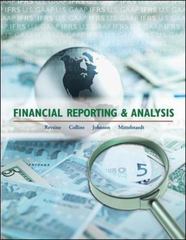Question
Very few markets or industries in the real world are perfectly competitive. For example, how homogeneous is the output of real firms, given that even
Very few markets or industries in the real world are perfectly competitive. For example, how homogeneous is the output of real firms, given that even the smallest of firms working in manufacturing or services try to differentiate their product.
The assumption that producers and consumers act rationally is questioned by behavioral economists, who have become increasingly influential over the last decade. Numerous experiments have demonstrated that decision making often falls well short of what could be described as perfectly rational. Decision making can be biased and subject to rule of thumb 'guidance' when consumers and producers are faced with complex situations.
Although unrealistic, it is still a useful model to economics and is taught in economics classes.Why might that be?
Step by Step Solution
There are 3 Steps involved in it
Step: 1

Get Instant Access to Expert-Tailored Solutions
See step-by-step solutions with expert insights and AI powered tools for academic success
Step: 2

Step: 3

Ace Your Homework with AI
Get the answers you need in no time with our AI-driven, step-by-step assistance
Get Started


